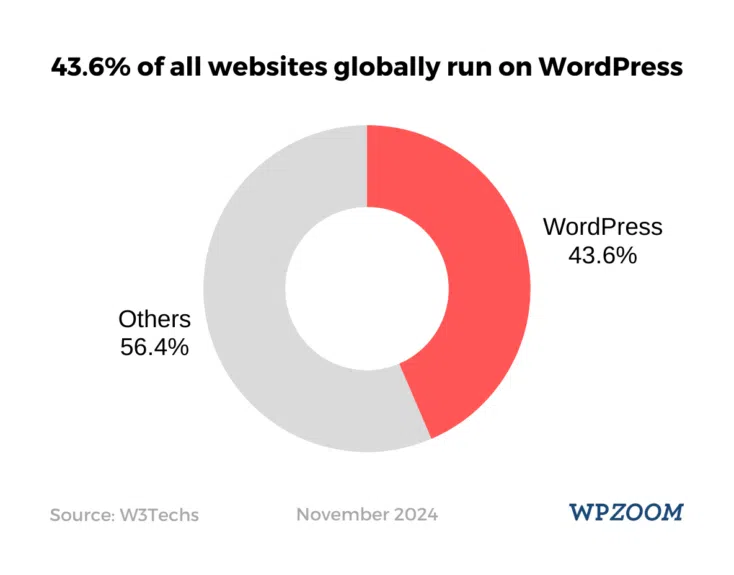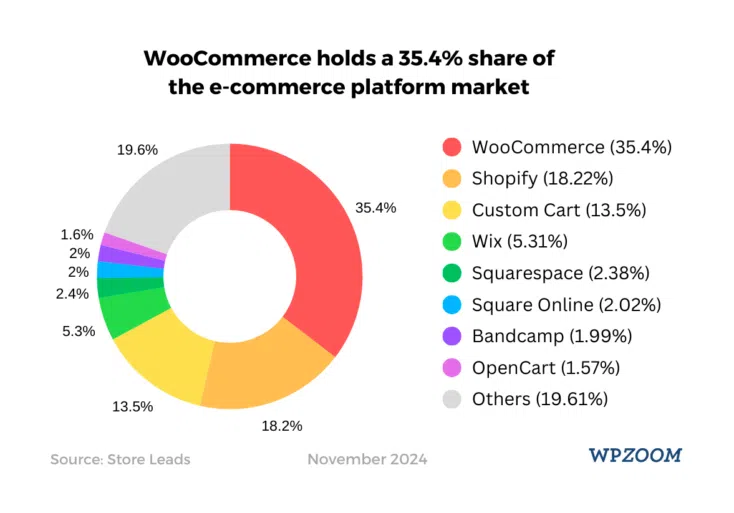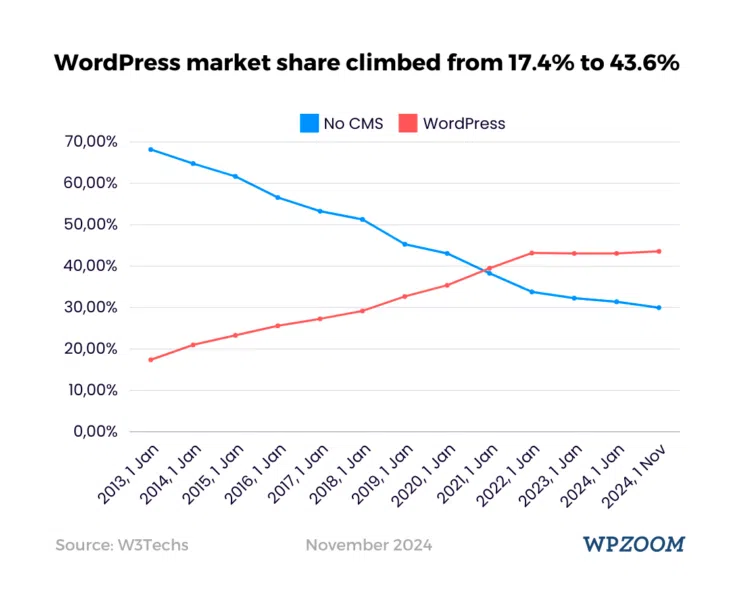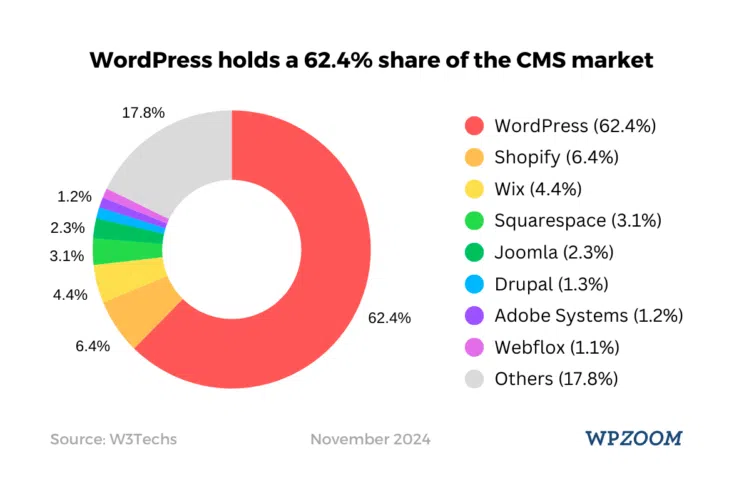Understanding the inner workings of WordPress can feel like navigating a sprawling ancient city – initially intimidating but ultimately rewarding.

Think of it as a journey my friend one that unfolds layer by layer revealing the beauty and complexity beneath the surface.
We’ll explore this together at a comfortable pace making sure you feel confident and in control every step of the way.

The Foundation: Server and Database Layers
Imagine the bedrock of your WordPress site as two interconnected levels: the server and the database.

The server often powered by Apache or Nginx is where all your website’s files live – the heart of the operation humming along quietly.
It’s like the sturdy foundation of a house providing the infrastructure for everything else to rest upon.
Think of all the little bits and pieces – your images your text your cleverly crafted code.
They all reside here waiting to be summoned.
This is where the magic of PHP happens the language that WordPress uses to bring your site to life.
It takes all the requests from your visitors and translates them into the wonderful experience they see on their screens.

It’s quite a process!
Now beneath the server lies the database typically MySQL.

This isn’t just a random storage space oh no.
Ready to level up your WordPress game? 🚀 This post just scratched the surface! Dive deeper and become a WordPress wizard! ✨ Check out this awesome resource! 🧙♂️
It’s an incredibly organized system a well-kept library where all your valuable content – posts pages comments settings – is carefully catalogued.
It uses tables with names like wp_posts wp_users and wp_options (though you might see a different prefix depending on the setup). These tables are like meticulously organized shelves ensuring everything is easily accessible and retrievable.
It’s all highly structured which is important because a bit of messiness here could cause all sorts of problems down the road.

Its a delicate balance and each piece has its place.
Thinking about it brings me back to my days of working on large projects; it was the most rewarding work of my life.
Security Considerations: Database Prefixes and Beyond
A small but important detail I learned over the years: That wp_ prefix at the beginning of your database tables? It’s a common convention but changing it to something unique significantly enhances your site’s security.
Think of it as changing the lock on your front door – a simple step that can deter unwanted intruders.
It’s a small change with a big impact.
The Core: Files Directories and Functionality
At the heart of this digital city lies WordPress’s core – the essential files and directories that handle the heavy lifting.

These files are like the city’s main arteries carrying vital information throughout the system.
You’ll find files and folders like wp-includes wp-admin and wp-content. These files shouldn’t be altered lightly.
Modifying them directly can be extremely risky; it’s like trying to rewire your house’s electrical system without knowing what you’re doing.
You might succeed but you’re more likely to cause a complete blackout.
Leave these for the experienced electricians.
The Importance of Keeping it All Updated
Regular updates are incredibly important here.
Think of it as regular maintenance on your house – patching up leaks replacing worn-out parts.
These updates usually contain bug fixes and important security patches which stop nasty things from happening.
Neglecting this can leave your site vulnerable.
Think of it as leaving your house wide open to burglars.

It’s never a good idea!
Customization: Themes and Plugins – The City’s Personality
Now let’s move beyond the city’s infrastructure to its character and charm.
Themes and plugins are the architects and designers shaping the look and feel of your WordPress city adding unique features and functionalities.

Themes are like the city’s aesthetic – its buildings streetscapes and overall vibe.
Ready to level up your WordPress game? 🚀 This post just scratched the surface! Dive deeper and become a WordPress wizard! ✨ Check out this awesome resource! 🧙♂️
A theme defines the visual presentation of your site how everything is displayed.
Plugins on the other hand are like the city’s amenities – its parks libraries and transportation systems.
They extend its capabilities adding new functionalities to enhance the user experience.
It’s quite amazing really.
All these pieces working in tandem to produce something beautiful.
I’ve seen sites that were nothing short of works of art!
Working with Themes: Child Themes and Safety
Now when it comes to modifying your theme always always use a child theme.
This is like making a copy of your blueprint before making any changes to your house’s structure.

It allows you to customize your theme without touching the original files.
This ensures that your changes are preserved even if you update the parent theme.
Updating themes is important but not if it means losing all your hard work!
The Power of Plugins: Extending Functionality
Plugins these little bundles of code are truly remarkable.

They can add anything from e-commerce capabilities (like WooCommerce) to sophisticated contact forms security enhancements and so much more.
Each plugin adds a layer of functionality expanding the city’s capabilities.
Just be careful about which plugins you install.
A poorly coded plugin can wreak havoc on your site similar to a construction project gone wrong so choose wisely.
Modern Advancements: REST API and Gutenberg
WordPress has always been evolving just like any great city.
In recent years two significant advancements have transformed how we build and interact with WordPress: the REST API and the Gutenberg block editor.
The REST API is like building a new high-speed internet network for the city.
It makes it easier to connect your WordPress site to other applications and services giving developers new tools for creating dynamic and engaging experiences.
Think of seamless integrations with other platforms automated processes and more possibilities than you can imagine.
It truly opens up a whole new world.
Gutenberg on the other hand is like giving the city’s residents a set of intuitive user-friendly building blocks.
This block-based editor makes creating and managing content more intuitive and visual letting users build pages with greater flexibility.
It’s a massive improvement over the old text-based editor.
Navigating the WordPress Root Directory
Every city has a central hub and for WordPress it’s the root directory.
This is where all the major components reside.
You’ll find folders like wp-admin wp-content and wp-includes. It’s a well-organized space but it can feel a little overwhelming for a newcomer.
Understanding Template Files
Within the wp-content/themes directory you’ll find your site’s theme files.
These are the blueprints for your website’s visual layout.

They control how information is displayed.
I’m talking about files like index.php single.php page.php archive.php and many more.
Each file serves a specific purpose akin to the various buildings and structures within a city.
Each of these files serves a distinct purpose controlling how different types of content are displayed:
index.php: Your homepage or the general fallback.single.php: Individual posts like blog entries.page.php: Static pages like “About Us” or “Contact.”archive.php: Pages that display multiple posts like category or tag archives.search.php: Search results pages.404.php: The “page not found” error page.
Learning to work with these files allows you to fine-tune the appearance of your website to an incredibly granular level.
Its powerful stuff.
However remember the lessons we learned earlier.
Back up your work before making any changes and if you aren’t confident don’t be afraid to ask for help!

Custom Post Types: Expanding the City Limits
WordPress by default offers standard post types like “Posts” and “Pages.” But you can create custom post types to fit your specific needs.
Think of this as expanding the city’s boundaries building new neighborhoods for specific types of content.
Maintenance and Troubleshooting
Just like any city your WordPress site needs regular maintenance.

This includes keeping your core files themes and plugins up-to-date.
Database Maintenance and Optimization
The database that carefully organized library needs occasional care.
Regular cleanup and optimization prevent it from becoming cluttered and sluggish.

Ready to level up your WordPress game? 🚀 This post just scratched the surface! Dive deeper and become a WordPress wizard! ✨ Check out this awesome resource! 🧙♂️
Think of it as spring cleaning for your digital city.
Tools like phpMyAdmin can help with this.
Ignoring database issues can cause all sorts of problems similar to neglecting a city’s infrastructure.
Check our top articles on A Guide to Understanding WordPress Architecture
The .htaccess File
The .htaccess file often found in your root directory controls various aspects of how your website interacts with the server.
Improper configuration here can cause issues with URL redirection or even make certain pages inaccessible.
Treat it with respect.
It’s a powerful but potentially dangerous tool like handling explosives.

Troubleshooting Common Issues
Sometimes things go wrong.
A page might not load correctly or permalinks might break.
The first step is often regenerating permalinks in the WordPress settings.
For more complex issues use the WordPress Codex or support forums.
Managed WordPress Hosting: A Helping Hand
Managed WordPress hosting providers like Pressable take care of much of the maintenance for you such as automatic updates.
They’re like a dedicated city maintenance crew ensuring everything runs smoothly in the background.

Conclusion: Embracing the Journey
Understanding WordPress architecture isn’t about memorizing every detail; it’s about developing a deep understanding of its underlying structure.
Learning about this amazing platform gives you the power to customize and control your online presence.
It might seem complex at first but remember – every great city started as a single village.
With patience and persistence you too can master the art of WordPress.
And please if you have questions or you need some help don’t hesitate to reach out to a professional.
They’re there to support you.
You’re not alone on this journey my friend.

